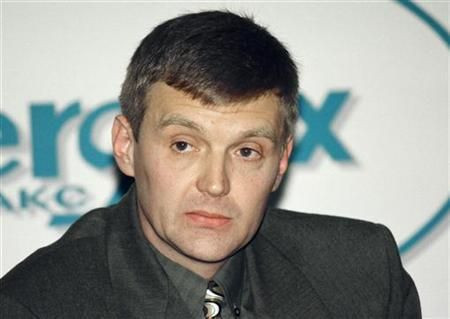Alexander Litvinenko Poisoning: UK To Investigate 2006 Assassination Amid Growing Tensions With Russia

The United Kingdom has opened a public inquiry into the mysterious death of Alexander Litvinenko, a former KGB spy and Russian dissident who was killed with a pot of poisoned tea in a London hotel in 2006.
An investigation into his death, widely blamed on shadowy Russian security services, comes as U.K. Prime Minister David Cameron and other Western leaders call on the international community to increase pressure on Vladimir Putin because of suspicions that a Russian missile is responsible for the crash of Malaysia Airlines Flight MH17.
Home Secretary Theresa May announced, in a written statement to the House of Commons Tuesday, that senior judge Sir Robert Owen will lead the inquiry. Owen has said in the past the evidence in the case does “establish a prima facie case as the culpability of the Russian state.” The decision is an about-face by the British government, with May admitting that “international relations have been a factor in the government’s” decision not to investigate Litvinenko’s death in the seven years since he withered away in a hospital bed.
“The inquiry will not address the question of whether the U.K. authorities could or should have taken steps which would have prevented the death,” May added as quoted by the Guardian.
The inquiry is scheduled to begin on July 31 and conclude by the end of 2015.
Litvinenko was a star officer in Russia’s Federal Security Service, or FSB, intelligence service until 1998, when he and several others accused their superior officers of ordering the assassination of oligarch Boris Berezovksy, an early supporter of President Vladimir Putin before he was exiled for criticizing the regime. Litvinenko was arrested and charged with exceeding his authority before being acquitted and moving to the U.K., where he became a journalist and outspoken adversary of Putin.
From London, Litvinenko penned the book “Blowing up Russia: Terror From Within,” which accused the FSB of orchestrating the notorious 1999 Russian apartment bombings and other terrorist attacks. The false-flag operations, as Litvinenko has alleged, gave the then-aspiring president Putin a scapegoat to justify the Second Chechen War and paved his path to the presidency. He also accused Putin of plotting the murder of journalist and human rights activist Anna Politkovskaya.
Years later Litvinenko, 43, met with two Russian men at the Millennium Hotel in central London, where he drank tea laced with radioactive polonium-210, a highly toxic substance that doctors were unable to stop from killing Litvinenko before he died of a heart attack in late November 2006. Former KGB bodyguard Andrei Lugovi and Dmitri Kovtun have been fingered as the primary suspects in the murder, although both have denied any involvement and have remained free, albeit unreachable, inside Russian borders.
Daniel Fried, formerly the top U.S. diplomat in Europe, said in a secret diplomatic cable unveiled by WikiLeaks in 2010 that it’s unlikely Litvinenko could have been murdered without Putin’s approval. Fried, noting "Putin’s attention to detail," questioned whether rogue security elements could operate, in the U.K. no less, without Putin’s knowledge. Describing the current atmosphere as strange, he described the Russians as increasingly self-confident, "to the point of arrogance.”
While the general consensus points the finger at Russian agents, major questions remain about the case. Many have speculated that Litvinenko was administered radioactive polonium-20 because his former comrades hoped he’d die slowly, while Vladimir Ryzkhov, a Russian historian and former member of the Duma, or parliament, guessed the assassination didn’t go according to plan.
“I think they supposed Litvinenko would die quickly,” Ryzkov told Popular Science in 2007, “and that specialists wouldn’t find out what substance was used. Polonium decays rapidly, so they may have expected no traces would be left behind and the British would say the cause of death was unknown.”
The inquiry’s terms of reference are “to conduct an investigation into the death of Alexander Litvinenko in order to ascertain who the deceased was; how, when and where he came by his death; identify where responsibility for the death lies and make appropriate recommendations.”
Leading the charge for an inquiry has been Marina Litvinenko, Alexander’s widow, whose attorneys have in the past criticized British investigators for putting the country’s relationship with Russia over the pursuit of justice.
“I am relieved and delighted with this decision,” Marina Litvinenko said Tuesday. “It sends a message to Sasha’s murderers: no matter how strong and powerful you are, truth will win out in the end and you will be held accountable for your crimes. … I look forward to the day when the truth behind my husband’s murder is revealed for the world to see.”
© Copyright IBTimes 2025. All rights reserved.





















